CrudeOil rPETRecycling CircularEconomy 25-03-2021 - Arhive
CrudeOil rPETRecycling CircularEconomy
Crude Oil Prices Trend

Royal DSM, a global science-based company in Nutrition, Health and Sustainable Living, today announces that it, along with leading industry partners, has launched a new coalition, known as CirculariTeam®. The coalition aims to drive the transition towards renewable bio- and recycled based resources within its respective industry. CirculariTeam® provides a common platform to share knowledge, resources, and technological solutions, with the goal of closing the loop on Dyneema®, the world’s strongest fiber™. CrudeOil rPETRecycling CircularEconomy
The cross-industry coalition consists of parties from across the value chain that use DSM’s Dyneema®, the world’s strongest fiber™, in their products. CirculariTeam® aims to drive the transition towards renewable bio- and recycled based resources within its respective industry. This matches DSM’s vision and mission of enabling a circular economy and keeping materials at their highest value for the longest possible time.
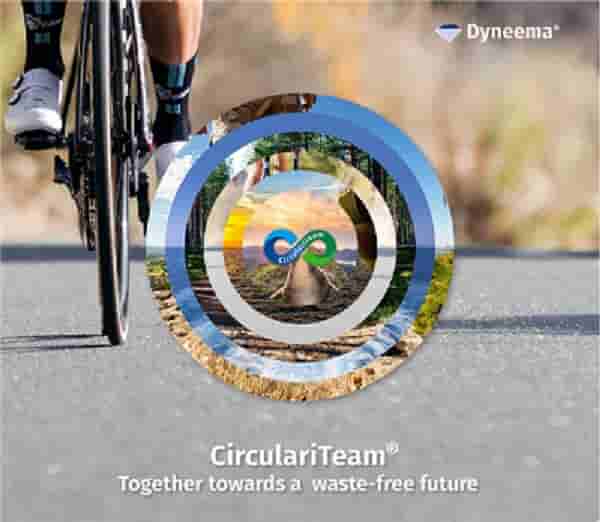
-INVISTA completes technology upgrade in Victoria, Texas
INVISTA has completed its project to bring the company’s most advanced adiponitrile (ADN) technology to its site in Victoria, Texas, on schedule, as part of the site’s regularly planned maintenance turnaround, said the company.
The site will manage a controlled start-up and ramp-up of ADN production.
ADN is a key ingredient for nylon 6,6 fibers and plastics used in industries like automotive production, electronics and electrical connectors. Applications also include automotive airbag fiber, specialty apparel fibers and high-performance coatings.
INVISTA’s latest ADN technology has also been deployed at its site in Orange, Texas; at Butachimie in France (owned 50 percent by INVISTA and 50 percent by BASF), and will be deployed at its ADN plant at the Shanghai Chemical Industry Park in China, which is targeted to begin production in 2022. This technology brings improved product yields, reduced energy consumption, lower greenhouse gas emissions, enhanced process stability and reduced capital intensity, compared to existing technologies. CrudeOil rPETRecycling CircularEconomy
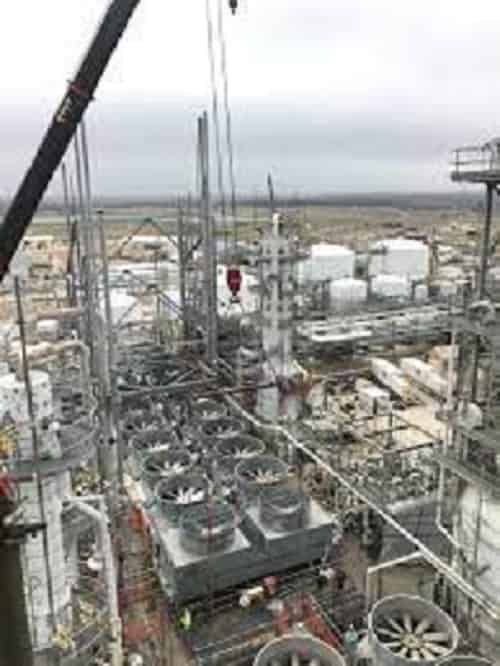
-China ACN market direction in Apr
In March, China ACN market has been in consolidation after slight decline from high level, as market participants hold certain anticipation towards the settlement prices for Mar, and based on this anticipation, even there are low offers, the sellers are unwilling to sell at low rates. Prices may be hard to change much before the update of settlement prices. In Apr, several factors have been changed.
For the supply side, PetroChina Fushun is previously scheduled to shut in Apr for maintenance, but the shutdown is delayed. Shanghai Secco closes its ACN unit in advance in Mar, which is planned to shut in Apr. Based on the previous schedule, the supply may reduce by about 22kt in Apr, but according to current status, the supply in Apr may even increase compared with Mar. Shandong Haili has restarted its 130,000 t/yr unit on Mar 12 and runs at 80-90% currently.
For the foreign market, Cornerstone remains under force majeure, resulting into supply tightness, pepping up the ACN prices. CrudeOil rPETRecycling CircularEconomy
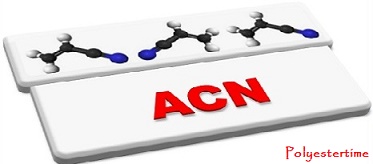
-March contract prices of PSV-S in Europe increased by EUR450-500 per ton
March contract prices of expandable polystyrene (PSV-S) in the European market increased by EUR450-500 per tonne amid rising prices for styrene raw materials, ICIS reports .
The contract price was negotiated free on board (FOB) Amsterdam-Rotterdam-Antwerp (ARA). CrudeOil rPETRecycling CircularEconomy
Thus, the contract price of styrene monomer in Europe was finally agreed on for March deliveries at the level of EUR1,551 per tonne, which is EUR501 per tonne or 48% higher than the level of the previous month.
Styrofoam suppliers sold off materials in early March and supply shortages are expected to remain until April. There are currently no production problems reported in the EPS market, but supply remains limited, in part as suppliers are cutting production and trying to build up inventories.
Supply is also limited due to the limited styrene supply from the previously announced force majeure by LyondellBasell and the lack of imports from the US due to severe winter weather conditions. Expanded polystyrene imports also remain low on the back of a continuing shortage of shipping containers and higher transport costs.
Construction demand remains stable due to supply problems and activity is expected to rise to a high level in the second quarter amid the high season and warmer weather conditions. However, it remains unclear whether the pandemic will have a financial impact on new construction projects in 2021.
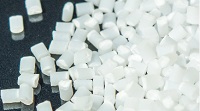
-Honeywell UOP to support Korean chemical company with aromatics derivatives
Honeywell announced that Lotte GS Chemical Corp. will use Honeywell UOP Q-Max™, Phenol 3G, and Evonik MSHP technologies to produce more than 565,000 metric tons per year of phenol and acetone at its petrochemicals facility in Yeosu, Korea.
UOP is providing a license for the technology, in addition to basic engineering design services, key equipment, catalysts and adsorbents and technical services.
As part of the project, UOP will provide a cumene unit and a phenol unit with alpha-methylstyrene (AMS) hydrogenation. The combined technologies will allow Lotte GS Chemical to produce phenol and acetone derivatives from benzene and polymer-grade propylene. CrudeOil rPETRecycling CircularEconomy
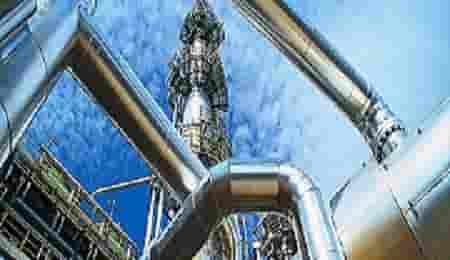
-Corbion Further Boosts Lactic Acid Capacity Through Concurrent Expansion Projects
Multiple productivity initiatives will increase supply of lactic acid, a nature-based ingredient, for the company’s customers in Europe and other regions
Corbion is launching a multi-faceted initiative to substantially increase its capacity for producing lactic acid and lactic-acid derivatives ahead of its previously announced major expansion in Thailand scheduled for 2023.
The global initiative, involving capital expenditures at four existing Corbion facilities to maximize efficiencies and leverage synergies, is expected to produce a combined additional output roughly equivalent to a new production site without actually having to build one. CrudeOil rPETRecycling CircularEconomy
Projects at Corbion’s production sites in Gorinchem (Netherlands), Rayong (Thailand), Campos (Brazil) and Montmeló (Spain), come on the heels of other recently announced capacity expansion efforts in Blair (Nebraska), but in advance of the construction of an entirely new lactic acid plant at the company’s existing site in Rayong (Thailand).
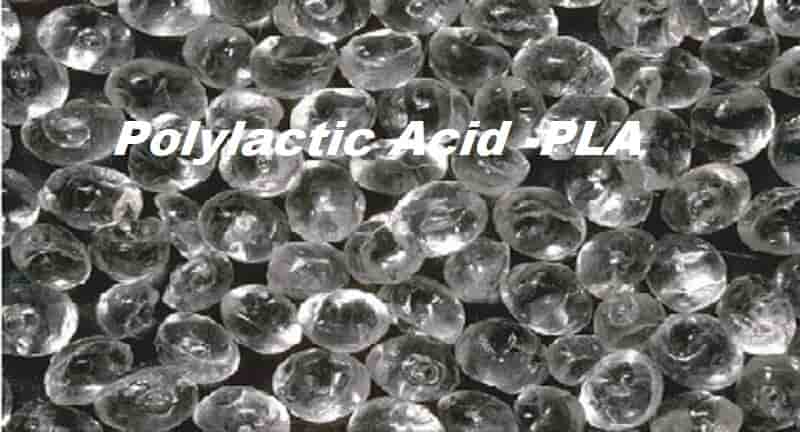
-Sateri to Expand Lyocell Production in China
The Changzhou Lyocell facility is expected to commence production in the third quarter of 2022 and will create more than 800 jobs
Sateri, the world’s largest producer of viscose fibre, is planning to expand its Lyocell production in China, with total planned annual capacity of up to 500,000 tonnes by 2025. CrudeOil rPETRecycling CircularEconomy
The first phase of this expansion kicked off recently with ground breaking works for a new 100,000 tonne facility in Changzhou, Jiangsu province. Another 100,000 tonne facility will be built in Nantong, Jiangsu province later this year. The Changzhou Lyocell facility is expected to commence production in the third quarter of 2022 and will create more than 800 jobs.
Sateri’s first foray into China’s Lyocell market was in May 2020 when its 20,000 tonne Lyocell production line in Rizhao, Shandong province commenced production. The same site houses a 5,000 tonne Lyocell pilot production line dedicated for the development of Lyocell application technology.

-Sinopec Raises March contract prices for MEG in East China by CNY350 per tonne
China China Petroleum & Chemical Corp. (Sinopec), Asia’s largest refinery, raised its March contract prices for monoethylene glycol (MEG) in eastern China by 350 yuan (CNY) or USD64.02 a tonne from the previous month, a company source told ICIS .
Thus, the March prices of the company’s MEG in the region are set at CNY5,850 or USD902.77 per tonne. CrudeOil rPETRecycling CircularEconomy
But recently, there has been a downward trend in MEG prices due to lower crude oil prices and the upcoming commissioning of new facilities
The cost of MEG spot volumes in eastern China on March 22 was CNY5,050-5,230 per tonne, compared to CNY6 400-6,750 per tonne on March 1.
The company operates four MEG plants with a total capacity of 1.835 million tonnes per year
Earlier it was reported that MEGlobal nominated the March MEG contract price for Asia at USD790 per tonne, which is USD50 per tonne higher than the February level. The price was quoted on terms of delivery CFR Asia.
MEG is one of the main raw materials for the production of polyethylene terephthalate (PET). CrudeOil rPETRecycling CircularEconomy
According to MRC ‘s ScanPlast , the estimated PET consumption in Russia in January 2021 increased by 3% compared to the same indicator a year earlier. In total, according to the results of the first month of the year in Russia, the total estimated consumption of PET amounted to 57.42 thousand tons.
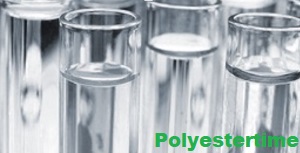
-How green are your leggings? Recycled polyester is not a silver bullet (yet)
Demand for sustainable activewear is soaring but without technological improvement marketing appeal will outstrip environmental benefit
A colleague was standing in front of me holding a swatch of shiny black polyester made from upcycled marine litter. CrudeOil rPETRecycling CircularEconomy
“It’s recycled but is it recyclable?” I asked.
“No,” she said, “it’ll end up in landfill.”
This was at the beginning of 2020 and we were at a sustainable fabric expo in London. It was just after the devastating Australian fire season that razed 18.6m hectares of bushland and just before Covid-19 relegated us to 12 months of working from home, working out at home and leaving home sparingly. A period in which office attire was abandoned and activewear was one of the only fashion categories to thrive.

A two-year project has seen converter Greiner Packaging replace yoghurt multi-packs made from PS with PP, whilst recreating the ‘snap’ that consumers love when separating individual units. CrudeOil rPETRecycling CircularEconomy
There is currently no PS recycling stream in the UK and supermarkets have been focused on removing PS products where possible. As such, Greiner set about trying to find a sustainable alternative and started trials in its Dungannon, Northern Ireland factory in 2018.
One of the advantages of PS was its ability to deliver a really effective ‘break’, which was initially difficult to achieve with PP. UK retailer Tesco was one of the first customers to move from PS multi-packs to PP multi-packs, but consumers were disappointed that packs made from the new material did not ‘snap’ in the same way as the previous PS packs.
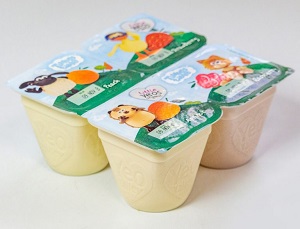
CrudeOil rPETRecycling CircularEconomy
